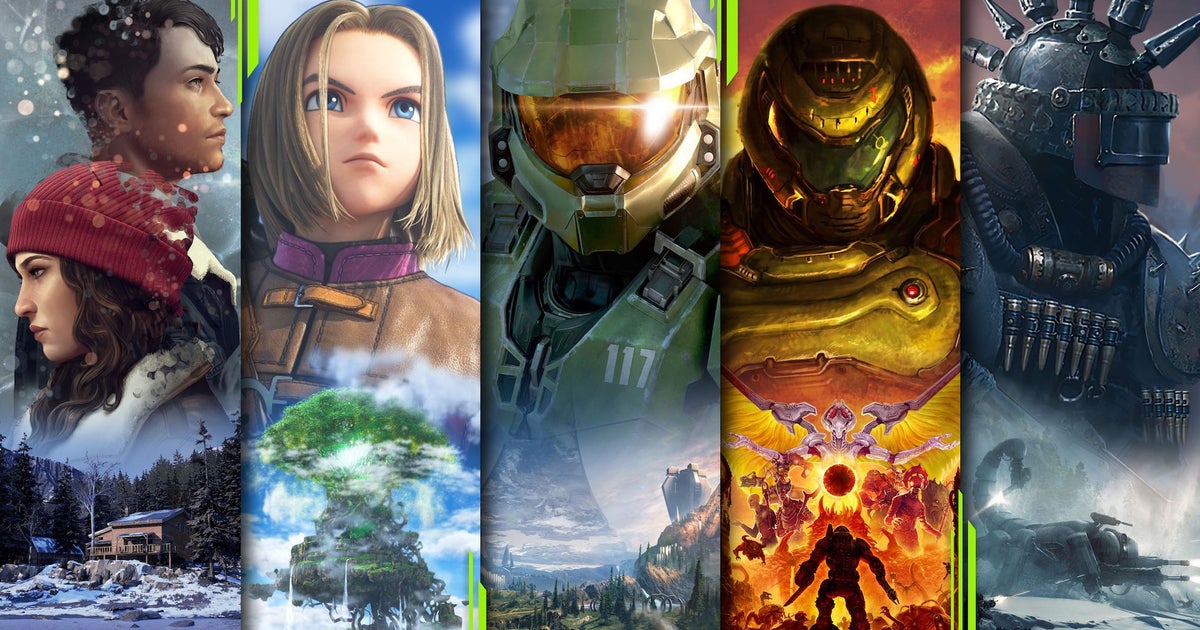
Former Bethesda marketing chief Pete Hines has been chatting about the ups and downs of videogame subscription platforms, such as Microsoft’s Game Pass service, GeForce Now and whatever the hell Ubisoft are calling theirs at the minute. Subisoftscription? UbiPassPlus? Answers on a postcard.
Hines is broadly of the opinion that subscription platforms are failing many of the developers who sign up to publish through them, though he cautions that his experience is out-of-date – he retired from Bethesda in October 2023.
In his time at Bethesda under Microsoft, Hines helped Bethesda bring Redfall, Hi-Fi Rush and Starfield to Xbox Game Pass. He seems to regret this. “I’m not working in any of these companies anymore, and so I don’t assume that everything I knew while I was in the industry still holds true today,” Hines told DBLTAP this month. “At the same time, I’m involved enough to know I saw what I considered to be some short sighted decision making several years ago, and it seems to be bearing out the way I said.
“Subscriptions have become the new four letter word, right? You can’t buy a product anymore. When you talk about a subscription that relies on content, if you don’t figure out how to balance the needs of the service and the people running the service with the people who are providing the content – without which your subscription is worth jack shit – then you have a real problem.
“You need to properly acknowledge, compensate and recognize what it takes to create that content and not just make a game, but make a product,” Hines went on. “That tension is hurting a lot of people, including the content creators themselves, because they’re fitting into an ecosystem that is not properly valuing and rewarding what they’re making.”
Hines didn’t go into proper specifics, so it’s left to me, a no-nothing figures-averse jackass, to scrabble together what relevant insights I can in the closing seconds of this awful Monday.
The battle lines for whether game subscription services are The Industry’s second coming or the work of the Devil (why not both, etc) are pretty well-drawn at this point. Anecdotally, at least, subscription models appear to make people less willing to spend money on individual new games. They indisputably grant more power to platform holders and storefronts.
Platform holders such as Microsoft have often contended that the relationship between the New Hotness of subscription and the olde worlde approach of owning (a license to play) a game is complementary. They suggest that a healthy subscription business will spill over into separate purchases down the line – for example, people buying games that are no longer part of the subscription library.
Without wishing to portray myself as a comprehensive researcher – see “no-nothing jackass”, above – I have come across one study of Xbox Game Pass and PlayStation Plus that appears to bear elements of the latter argument out, showing that in contrast to the music or movie and TV industry, these subscription services have not “substantially cannibalized existing revenue streams”.
Still, that’s treating the income from games on those platforms as a block. Individual developers have reported different returns from adding their games to subscription platforms. Posting on LinkedIn this week in response to Hines’s comments above, former Xbox Game Studios vice-president Shannon Loftis suggested that games often suffer for appearing on Game Pass, unless they include a bunch of ways to make money after release. “While [Game Pass] can claim a few victories with games that otherwise would have sunk beneath the waves (Human Fall Flat, e.g.),” she wrote, “the majority of game adoption on Gap comes at the expense of retail revenue, unless the game is engineered from the ground up for post-release monetization.”
The other question is whether subscription models are really worth it for the platform holders themselves, given that historically, subscription models have tended to rely on undercharging at first, then belatedly raising the price and making your money back once you’ve got the audience hooked.
In July, Microsoft reported $5 billion in revenue from Game Pass over the past year. Sources have told Chris Dring, formerly of GamesIndustry.biz, that “Xbox Game Pass is profitable, even when you factor in the lost sales for its first-party teams”. It doesn’t appear profitable enough, however, going by Microsoft’s recent mass layoffs, but then again, it feels like Microsoft could pioneer a way to literally grow money on trees right now and still find cause to punt a hundred QA testers into the sea.
I don’t have a Game Pass subscription myself, partly because I’m trying to support the BDS campaign against Microsoft. In general, I don’t like subscription models because it feels like paying rent, and thereby teaches me to think of playing games as even more of a value-extraction exercise. I feel pressured to download and play a load of games to maximise the return on my investment, and then I start to loathe myself, because somebody poured heart and soul into e.g. that cottagecore feline frisbee simulator, and here I am shovelling it down to meet quota. How are you getting on with such things?